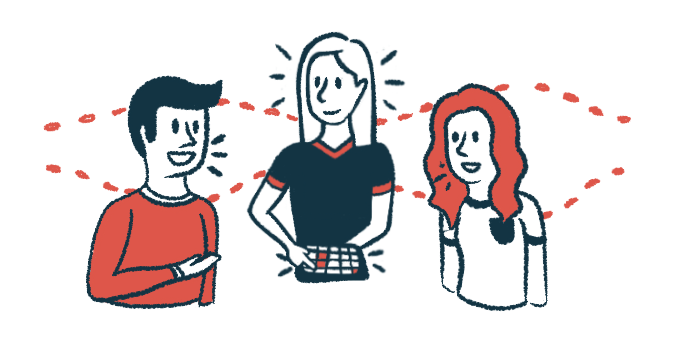Alzheimer’s and Brain Awareness Month means ‘going purple’
Alzheimer's Association to mark its 'The Longest Day' fundraiser on June 21
Written by |

There’s lots of ways to support Alzheimer’s and Brain Awareness Month this month, from “going purple” to sharing facts and resources, to help call attention to the estimated 47 million people globally who live with Alzheimer’s disease or dementia.
Alzheimer’s is the most common cause of dementia, a group of primarily cognitive symptoms that can include memory loss, confusion, and diminishing reasoning ability, that interfere with a person’s daily life. The annual awareness campaign targets lawmakers, public authorities, industry representatives, researchers, and health professionals, along with the general public.
Supporters can take part in the Alzheimer’s Association’s Go Purple Challenge, which involves sporting the disease’s official color to raise funds and awareness to help fight the progressive neurodegenerative disorder.
Several celebrities, including actress Marlee Matlin will take part in the campaign. “The fact that you can be overwhelmed with the sense of responsibility, to accept the changes, to accept the fact that there is no cure, I wish I had learned those things earlier,” Matlin is quoted as saying under a photo of her wearing a purple shirt.
Supporters are also encouraged to share on Instagram or X why they work to raise awareness, using the hashtag #ENDALZ and including a photo. Submissions may become part of the association’s online gallery.
Another way to support the Alzheimer’s community is by signing up to volunteer for the Alzheimer’s Association, which works to accelerate global research on reducing risk and improving care and support.
On June 21, the association marks the summer solstice with its “The Longest Day” fundraising effort to battle “the darkness of Alzheimer’s.” Proceeds go to research, and patient and family care, and support. The Alzheimer’s Association is currently investing about $405 million in more than 1,100 investigations in six continents.
Fundraising ideas include hosting a card game or dance night, organizing a golf outing or neighborhood barbecue, arranging a hike, performing music, and baking cupcakes. Fundraising pages are set up online through the organization. The Longest Day participants may act individually or join a local or global team.
Events, activities mark awareness efforts
Elsewhere, the National Institute on Aging (NIA), part of the National Institutes of Health, seeks to raise awareness about Alzheimer’s disease and dementia in the Latino community. Throughout June, the NIA will share research and resources for patients and caregivers in English and Spanish using the #NIAAlzheimers hashtag. Each week, a different Alzheimer’s topic will be featured, including the basics of the disease and its risk among Latinos, Alzheimer’s causes and risk-reduction tips, finding caregiver resources, and facts on clinical trials.
Also, the health department of Newburyport, Massachusetts is marking the month by asking supporters to don purple garb and talk about Alzheimer’s.
“June is Alzheimer’s & Brain Awareness Month, an opportunity to hold a conversation about the brain, and share the fact that Alzheimer’s disease and other dementias are a major public health issue,” the department states on the city’s website. “Everyone who has a brain is at risk to develop Alzheimer’s, the only leading cause of death that cannot be prevented, cured, or even slowed.”
University of Massachusetts President Marty Meehan is encouraging awareness month participants to help end Alzheimer’s by wearing purple, sharing stories and memories, and educating themselves and others about cognitive health.
“More than 6 million Americans are living with Alzheimer’s, which kills more people each year than breast cancer and prostate cancer combined,” the statement reads. “In addition, approximately 200,000 cases are people under the age of 65 with early onset Alzheimer’s, including a local father of three in his 50s.”
Also during June, AARP Virginia, along with the Alzheimer’s Association of Southeastern Virginia, will present a four-part Zoom series called Brain Bites, which focuses on Alzheimer’s awareness and brain health. Topics will include healthy lifestyle choices, dementia, caregivers and Alzheimer’s families, and the six pillars of brain health. More information is available by emailing [email protected].
An Alzheimer’s & Brain Awareness webinar will be presented by the Los Angeles County Aging & Disabilities Department on June 17. Topics will include risk reduction, early detection, and advance care planning.
In the U.K., The Alzheimer’s & Dementia Show, a two-day event for families, caregivers and health and social care professionals, will happen June 14-15 at ExCeL in London. The show will cover the latest care practices and provide networking opportunities along with information about resources, services, and products.





